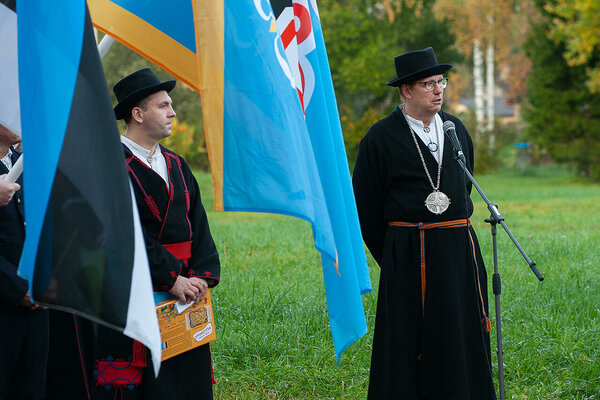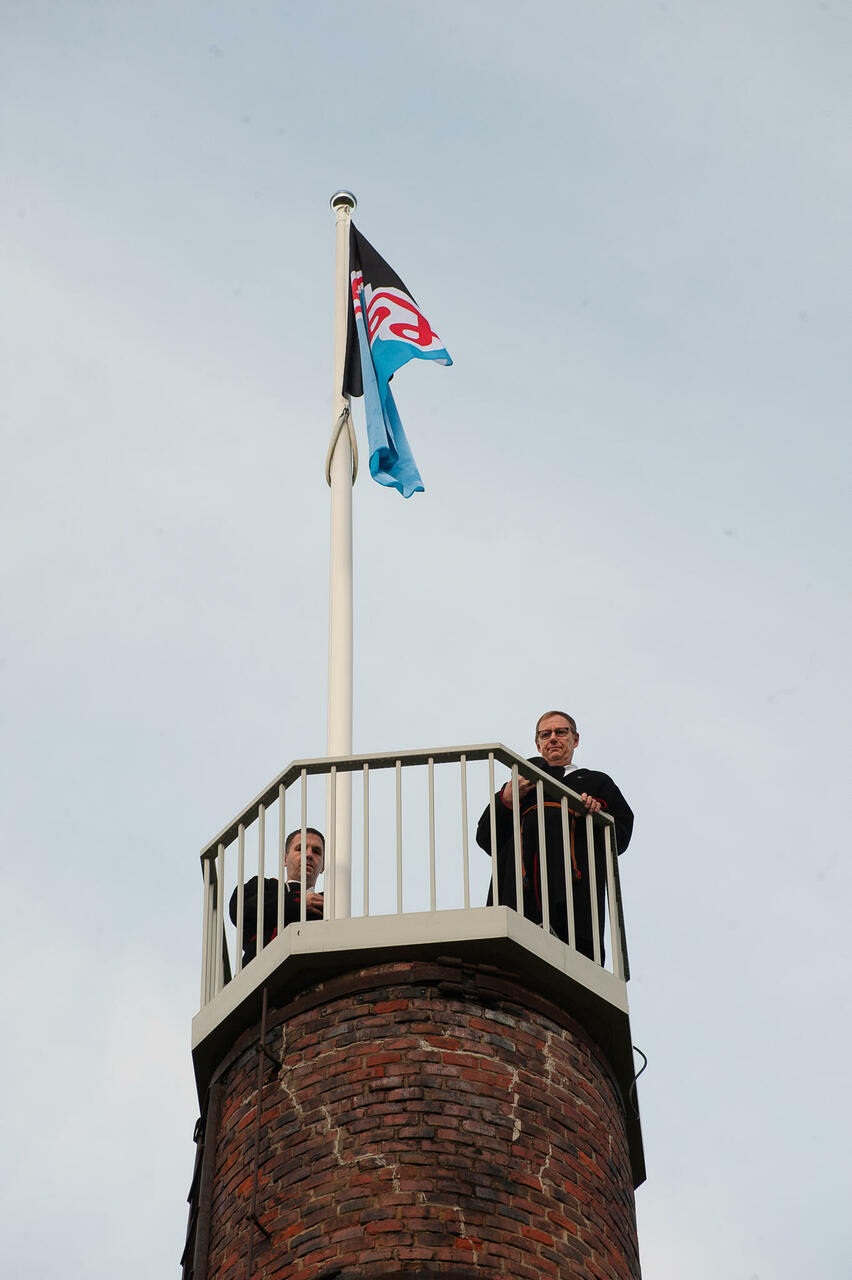"Elder's role is to promote Mulgi cultural distinctiveness and image" - interview with Arvo Maling, the new Mulgi elder
Arvo Maling was handed over the title of Mulgi elder on October 12, 2020, in Mustla. He will keep the title for two years. This means that Arvo will play an important role in 2021 when Abja-Paluoja, the historical capital of Mulgimaa (Mulgi land) will serve as the Finno-Ugric Capital of Culture 2021. URALIC Centre spoke to Arvo Maling with the goal to introduce him and the Mulgi people to the wider Finno-Ugric community.
Arvo Maling speaking in Mustla, on October 12, 2020. Photo: Jaan Pääsuke
Arvo Maling, congratulations on becoming the new Mulgi elder! Tell us something about yourself and your Mulgi identity.
I am an indigenous Mulgi. My parents spoke Mulgi language with me and passed it on to me. I live in a farm that was bought out by my ancestors 153 years ago from a [Baltic-German] landlord, which is where my grandfather built a Mulgi mansion. I am a veterinary physician and business manager by training. But I have been active municipal leadership in Mulgimaa for 27 years, including for 17 years as the head of municipality. Right now I earn my living with entrepreneurship. I have been a folk dancer all my life.
This is your second term as the Mulgi
elder. What is the role and meaning of a Mulgi elder in the Mulgi movement?
I have
been associated with the Mulgi Culture Institute NGO (www.mulgimaa.ee) since
2004, when together with Mulgimaa’s municipal leaders we decided to join forces
for promoting Mulgi culture and language, and for strengthening the region’s
economic situation via this organisation. Members of the Mulgi Culture
Institute include Mulgimaa’s municipalities and with a mandate from the people
they elect the Mulgi elder, whose role is to be the spokesman and
representative figure of Mulgimaa. Elder’s tasks include promoting the cultural
distinctiveness and image of Mulgimaa, which would support regional
development.
How do you evaluate today’s state of the Mulgi movement, and the Mulgi identity, compared to 10-20 years ago?
Much work has been accomplished during the past 20 years. I am really glad that the Mulgi Culture Institute has managed to initiate a programme for supporting Mulgi cultural heritage on the state level, which helps support Mulgi culture and language. We have managed to engage kindergartens and schools into the Mulgi movement. Libraries and community centres are doing good work. There is a growing number of private sector organisations and people who are becoming conscious of the importance of promoting Mulgi identity for our region. And those who can make use of the Mulgi image, thus preserving and developing the Mulgi culture. While in the past it was not so important what kind of folk costume one wears at the Estonian Song and Dance Festival, then now it is a matter of honour to only wear the costume of one’s parish [in Estonian: kihelkond]. Also the Mulgi image supports small businesses. We must work harder to promote domestic tourism. We are about to begin building the Mulgi Experience Centre, which should become a key destination in Mulgimaa.
Of course the decrease in daily use of Mulgi language is a problem. People do not speak it at home and in public spaces one hardly hears it. Yet at the University of Tartu and in main centres of Mulgimaa it is possible to study Mulgi language. There are competititions for original Mulgi-language songs and poetry.
The Finno-Ugric Capital of Culture 2021, Abja-Paluoja, will be in Mulgimaa. What does Mulgimaa and the Mulgi community have to offer to Finno-Ugric kindred peoples?
The leading theme of the cultural capital year is Mulgi handicrafts, the archaic Mulgi pattern on folk costumes, on modern applied objects and in public spaces. We would like to promote wider usage of ancient patterns, which are characteristic to our peoples. This helps us distinguish ourselves, while passing on the cultural heritage into modernity. Secondly, we would like to raise awareness of our kindred peoples in Mulgimaa and Estonia, and to talk about the needs of small-numbered Finno-Ugric peoples with respect to protecting their culture and language, both in Estonia and abroad.
Read more about
Mulgimaa here: https://www.mulgimaa.ee/en/mulgimaa/
Arvo Maling at the top of the Mulgi Lighthouse in Mustla during the festive ceremony of the Mulgi flag week on October 12, 2020. Photo: Jaan Pääsuke

